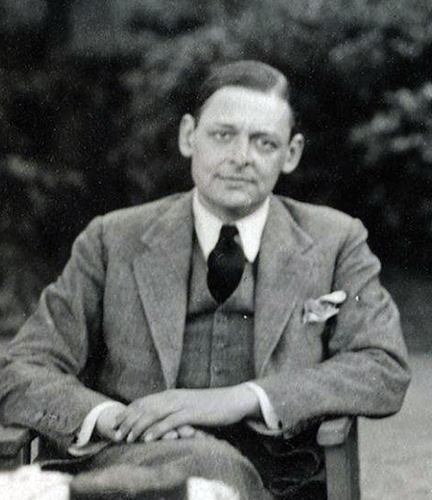"Literary Links" is a series of posts celebrating Britain's wonderful links with great authors, dramatists and poets.
 |
| T.S.Eliot |
·
Thomas
Stearns Eliot (1888-1965) was American born but arrived in Oxford in 1914
with a scholarship to study philosophy. He was based at Merton College.
 |
| Merton College Library |
Oxford did not win him over and he was gone within a year claiming “I
hate university towns and university people, who are the same everywhere, with
pregnant wives, sprawling children, many books and hideous pictures on the
walls… Oxford is very pretty, but I don’t like to be dead.” However, England did win him over for in 1927
he became a British citizen. His most
famous works are The Love Song of Alfred Prufrock, The Waste Land, The Hollow
Men and Old Possum’s Book of Practical Cats.
The latter was adapted by Andrew Lloyd Webber into the musical
Cats.
This
is an excerpt from the tour Oxford’s Noble and Great Ones - Part
1 which explores around the southern part of Oxford.
The full tour is found on www.obelisktours.co.uk



